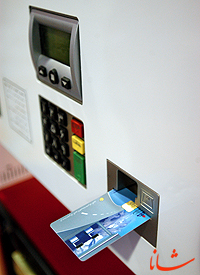Mohammad Nasseri, talking to PIN, said the system had been run in all 2,300 petrol stations of the country, out of which 1,400 were currently supply gasoline only with smart card.
He added the remaining 900 gas stations would supply petrol just with smart card when the national rationing plan took effect.
According to Nasseri, about six million fuel smart cards had been submitted to car owners.
Fuel smart card project became operational on May 10, the advisor to deputy minister of petroleum for refining and distribution affairs said.
Abdolreza Amini told PIN the smart card system had been put into operation in some gas stations in order to identify and remove the problems.
He pointed to massive dissemination of information about the use of smart card, adding the general public would get further information in the coming days.
“Fuel smart card system is completely different from Shetab banking network,” underlined the official, adding, “Shetab network works online and therefore the emergence of problems while receiving data is a real possibility, but smart card system operates offline and there is no interruption in its system as it occurs in Shetab network.”
Last March, the Majlis approved that the government could sell rationed gasoline at 1,000 rials (less than 11 cents) per liter through smart cards as of May 22. The lawmakers also authorized the cabinet to determine the price of gasoline sold in excess of the rationed quota.
The cabinet is to define the rationed gasoline quota today, but the officials have yet to make the final decision on the date of rationing.
Rapporteur of Energy Committee of Majlis (
“The cabinet and Majlis are not expected to pass the buck for the delay as both sides are trying to fulfill their duties,” he told PIN, adding the necessary infrastructure has not been yet provided in the country, making it difficult to put the plan into practice.
Representing Dashtestan town in parliament, Shoja said had Majlis not stopped the regular increase of petrol price, the rate would have reached 1,500 rials (16 cents) in 2007, avoiding scores of existing problems.
“According to the fuel consumption bill, petrol will be supplied at its real rate within five years which means it needs to gain 850 rials (9 cents) per annum but the rise in the current year’s price will cause a 1,000 rial (10 cent) yearly growth in the commodity’s rate,” he said.
Although rationing would not start as of due time, authorized bodies deserved appreciation for timely providing and distributing just about all smart cards, said the official.


Your Comment